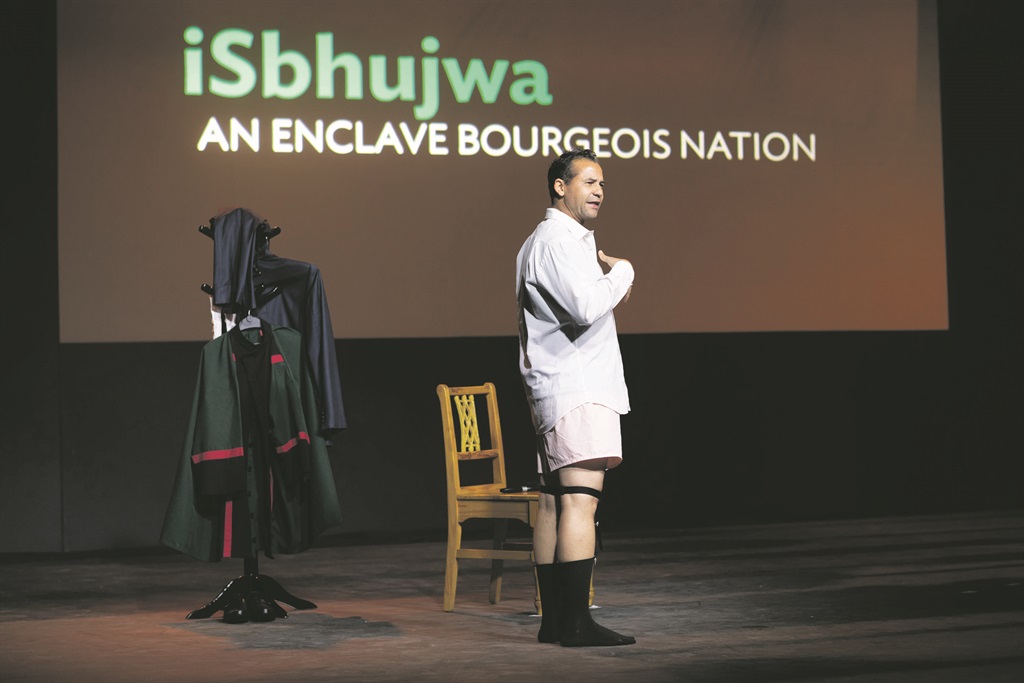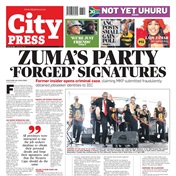
The Mapungubwe Institute for Strategic Reflection has looked 12 years into the future to guide the choices the country makes now
We have a choice to make as a nation: either a prosperous, socially cohesive country, or one wracked by protests, poverty and rampant crime.
The Mapungubwe Institute for Strategic Relection (Mistra) launched its Indlulamithi Scenarios 2030 last week, informed by research and input from business leaders, civil society, trade unions and academics.
President Cyril Ramaphosa said this view into the future was “not another sangoma moment for our nation”, but essential scenario planning for where we could find ourselves in 12 years time.
Scenario 1: ‘An enclave bourgeois nation’
South Africa’s current divisions widen as the poor majority continue to feel deep historical injustice and resentment.
It is a nation of two societies: one poor and the other rich, living in luxurious, gated enclaves and security estates in what Indlulamithi steering committee member Xolelwa Kante-Katiya described as the “Steyn City phenomenon”.
In this scenario, the economy grows by an average of 2.2% a year and unemployment drops to 22% by 2030.
Private security, private health facilities, private justice mechanisms and even private boreholes for water proliferate for the wealthy, offering comfort and luxury.
“As education becomes increasingly privatised, the elite send their children overseas for their education and abandon the state-sponsored education system.”
Stuck in poverty and stripped of hope and aspiration, the poor take matters into their own hands and form their own enclaves.
“We also call it ‘the poor maak n plan’ (make a plan). We see communities establishing early childhood development centres for example,” said Kante-Katiya, Mistra project manager for research projects.
“Those are so effective they even start doing much better than the state-sponsored child development centres.”
These early childhood development centres transform into informal schools, staffed by former state school teachers, and some outperform government primary schools in maths and science.
Self sufficiency increases as citizens realise that despite political promises, jobs are not coming.
Many unemployed people find piecemeal work in cleaning and transport services.
This blows up into frequent public protests to attract government’s attention, but the rich still ignore them.
By 2028, South Africa will experience almost 3 000 serious protests which start peacefully but turn into mini uprisings.
This includes blockading freeways, barricading streets, torching trucks, firebombing councillors’ homes and the routine destruction of state property.
A substantial increase in social grant recipients leaves the middle class insecure and isolated, and staging their own protests.
Rural residents, disregarded by urban elites, revolt against autocratic and demeaning traditional leadership, burning farms and crops.
Wealthy black farmers who benefit from the rapid allocation of the 4 000 state-owned farms between 2019 and 2022 are targeted by irate workers and the landless.
Scenario 2: ‘A nation in step with itself’
The 2019 elections, although fiercely contested, are peaceful and shift the mood of the nation. Growing social cohesion and a market-led approach grows the economy by 4.5% on average a year, and by 2030 the unemployment rate falls to 16%.
There is a renewed spirit of constitutionalism. And although the ANC retains power, it has a reduced majority which is still enough to unleash a wave of optimism – even among investors.
Instability and inequality are a thing of the past by 2020, a process that began with a social compact formed by Cyril Ramaphosa’s government after 2019.
Indlulamithi steering committee member and Anglo American project assistant Vuma Ngcobo describes this as a nation moving in sync and walking towards a common goal.
Robust debate helps to pull us together, and gives rise to a new land bill tabled and passed in 2020, allowing for accelerated land distribution, and far better support for new landowners.
The release of state-owned land and some land expropriation creates more connected and secure urban communities.
All 4 000 state-owned farms go to new owners who use the land productively. But the elite start to benefit from this, leaving the poor disgruntled, which fuels protests.
“Many coalitions are formed, especially at local level,” says Ngcobo.
The country benefits from expanded access to higher education, and there is a renewed effort to turn around the education crisis with better-trained teachers to ensure mother tongue education is the new normal for the first five years of schooling.
While the state’s capacity improves, trust remains eroded. Despite some spectacular corporate bankruptcies and several high-profile corruption trials, the private sector repositions itself as the moral guardian of society, together with political unions and charismatic church movements, and supported by mainstream media.
These wealthier South Africans shore up support for a range of private sector-centred solutions to society’s problems.
Social campaigns expose systematic connections between patriarchy, economic exploitation, ethic chauvinism and violence against women, children and LGBTQIA people.
A fractured but determined trade union movement, including more militant new unions, focus more on pro-poor growth strategies. The last of the liberation struggle stalwarts retire or pass away and a younger “internet generation” start governing.
Scenario 3: ‘A floundering false dawn’
A failing and demoralised nation wracked by disorder and decay, where attempts to reinstate integrity and reinvigorate state enterprises, transparency, ethics and efficiency, fall flat.
Recession follows the brief euphoria and short-lived economic recovery of 2018/19.
Gross domestic product growth averages at 1.5%, and unemployment, which never falls below 25%, increases towards the end of the 2020s.
Inflation caused by an oil price shock in 2023 creates a serious divide between those able to earn a living and others “granted” an income.
Here, says steering committee member and Mistra researcher Dr Beth Vale, protests and uprisings become more frequent and violent.
“This scenario imagines that whatever new optimism you might find now turns out to be false optimism and instead what we discover is the extent of corruption, mismanagement, nepotism and cronyism is deeply embedded at provincial and municipal level, further extending far beyond the echelons of government or the private sector,” she says.
A number of municipalities go bankrupt. The country’s financial troubles are worsened by a spike in social grant beneficiaries and government-funded tertiary education, forcing the government to borrow more and rely on donors.
“Inequality and unemployment skyrocket, and the country’s ability to deliver basic services becomes very difficult,” says Vale. Factionalism and infighting between political parties flourish.
By 2024, repeated calls by angry voters force the ANC, degraded by impunity and failed prosecutions, to concede power to a fragile coalition.
A deeply compromised prosecuting authority fails to win even clear-cut corruption cases, fuelling rage across the nation.
In 2025, an additional R50 billion goes to keeping SAA, Mango and SA Express afloat while other state-owned enterprises like Eskom continue to leech off the state’s limited reserves.
“This is a failing nation with very poor state capacity and an inability to recover the strength of our institutions across the board,” said Vale.
Instability gives rise to a more authoritarian government, with censorship and arbitrary arrests. But no one dares use the term “state of emergency”.
The police’s crowd-control units are stretched while the army struggles to remain neutral.
Citizens would rather have fewer freedoms in exchange for protection. Middle classes leave their gated communities in convoys for protection, and South Africa has the highest per capita number of security guards in the world.
Crime and gangsterism increase and international syndicates spend big money building networks and buying corrupt cops.
South Africa elects its first woman president from the generation born after the 1980s who, with the youth, try to clean up the mess created by “old” men.
There is renewed hope that real change is possible.
This unexpected euphoria reminds the older generation of when a hopeful nation wished for renewal in 2019, only to see their hopes fade.
The nation prays things will be different this time.
TALK TO US
How should South Africans use these scenarios?
SMS us on 35697 using the keyword MISTRA and tell us what you think. Please include your name and province. SMSes cost R1.50




 Publications
Publications
 Partners
Partners








